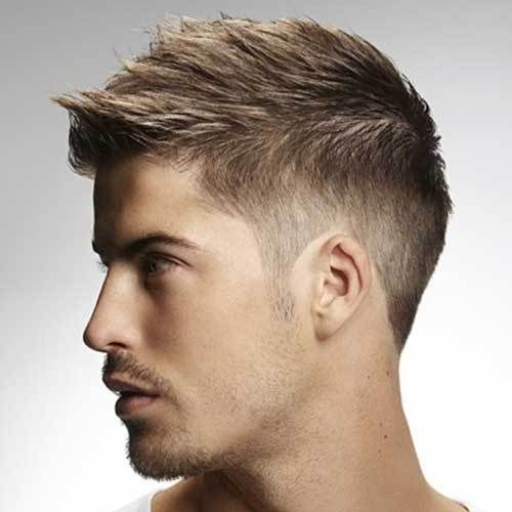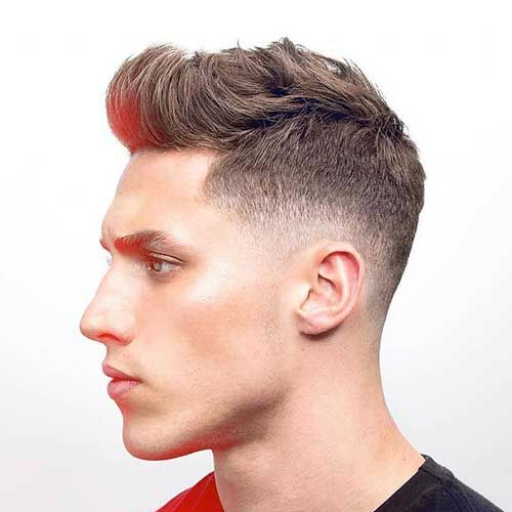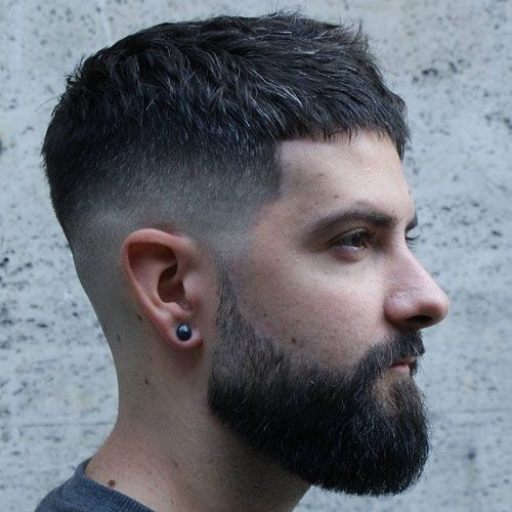Hair loss is a natural part of aging, but for many women over 60, it can be an emotionally and physically challenging experience. This blog post seeks to shed light on the mystery of female hair loss in later life, exploring its common causes, potential treatments, and ways to manage it with confidence. We’ll discuss the role of hormones, genetics, and lifestyle factors in age-related hair thinning, as well as the options available to slow its progression and support healthy hair growth. Whether you’re facing this issue yourself or looking to better understand it, this guide aims to provide clarity, practical advice, and assurance that you’re not alone in this journey.
What Are the Common Causes of Female Hair Loss Over 60?
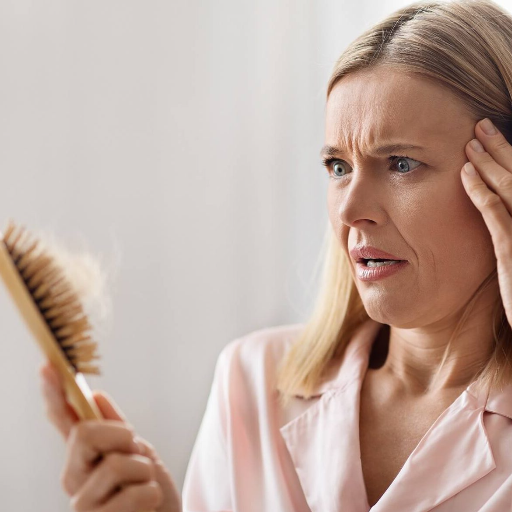
Female hair loss over 60 is often influenced by a combination of hormonal changes, genetics, and lifestyle factors. A significant cause is the decrease in estrogen levels that occurs after menopause, leading to thinning hair and reduced hair growth. Genetics also play a major role, with hereditary conditions like female pattern hair loss (androgenetic alopecia) becoming more prominent with age. Additionally, factors such as stress, nutritional deficiencies (like low iron or vitamin D), certain medications, and underlying health issues, such as thyroid imbalances, can contribute to hair thinning. Understanding these causes is the first step in managing and addressing this common concern.
How Does Menopause Contribute to Hair Loss?
During menopause, I’ve learned that hormonal changes play a significant role in hair loss. The drop in estrogen and progesterone levels can slow down hair growth and make strands thinner. At the same time, a relative increase in androgens, or male hormones, can cause hair follicles to shrink, leading to hair thinning or even hair loss in certain areas. This hormonal imbalance can be further compounded by stress, which often accompanies menopause, exacerbating the issue. Understanding these changes helps me approach hair loss with informed solutions and strategies.
Can Vitamin and Mineral Deficiencies Cause Hair Loss?
Yes, vitamin and mineral deficiencies can contribute to hair loss. For example, low levels of iron, biotin, zinc, and vitamin D are commonly associated with hair thinning and shedding. These nutrients play crucial roles in hair follicle health and growth. For instance, iron aids in carrying oxygen to hair follicles, while vitamin D helps stimulate hair growth. Lack of biotin or zinc can hinder keratin production, weakening hair strands. Personally, I’ve found that maintaining a balanced diet and, when necessary, incorporating supplements can support healthier hair and potentially prevent further loss. Of course, consulting a healthcare provider is always essential to address specific deficiencies effectively.
Is Thyroid Function a Common Cause of Hair Loss?
Yes, thyroid function is a common cause of hair loss, and I’ve learned how closely it’s tied to overall health. An underactive thyroid (hypothyroidism) or overactive thyroid (hyperthyroidism) can disrupt the hair growth cycle, leading to thinning or shedding. Personally, I’ve noticed that addressing thyroid imbalances through proper treatment, such as medication or dietary adjustments, can significantly improve hair health over time. It’s also crucial to work closely with a doctor to monitor thyroid levels and develop a tailored plan to manage symptoms effectively.
How Does Menopause Affect Hair Growth?

Menopause can significantly impact hair growth due to hormonal changes, particularly the decline in estrogen and progesterone levels. These hormones play a key role in supporting healthy hair growth, and their reduction can lead to slower hair growth and thinning. Additionally, the relative increase in androgens (male hormones) during menopause can cause hair to become finer or even result in hair loss in some areas, such as the scalp. It’s essential to maintain a healthy diet, manage stress, and consult with a healthcare provider for tailored solutions to support hair health during this transition.
Understanding the Role of Hormones in Hair Health
Hormones play a significant role in hair health, and I understand how changes during life stages like menopause can impact this. Estrogen and progesterone help support hair growth, and when their levels decline, it’s normal to notice thinning or slower growth. At the same time, an increase in androgens may lead to finer hair or hair loss on the scalp. To address these changes, I focus on maintaining a balanced diet, managing stress effectively, and seeking advice from healthcare professionals to find the best solutions for keeping my hair healthy.
Is Hair Thinning a Normal Part of Menopause?
Yes, hair thinning is a common part of menopause and a natural response to hormonal changes. The decline in estrogen and progesterone levels during menopause can slow hair growth and lead to increased shedding. At the same time, higher levels of androgens can cause hair to become finer or even contribute to hair loss on the scalp. While this experience can vary from person to person, addressing hair thinning often involves a combination of strategies, such as maintaining a nutrient-rich diet, using hair care products designed for thinning hair, and consulting with healthcare providers to explore treatments like topical solutions or medications. Prioritizing overall health and reducing stress can also play a significant role in supporting hair health during this time.
What Are the Different Types of Hair Loss Experienced by Older Women?
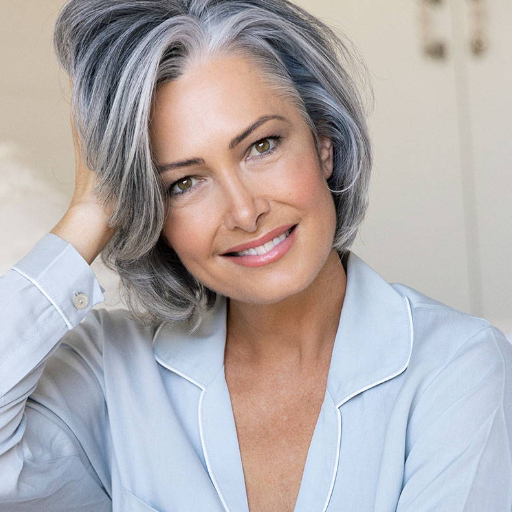
There are several types of hair loss commonly experienced by older women, each with distinct characteristics. Androgenetic alopecia, also known as female pattern hair loss, is the most common and involves a gradual thinning of hair, particularly at the crown and part line. Telogen effluvium is another type, often triggered by stress or significant life changes, where hair enters the shedding phase prematurely. Alopecia areata is an autoimmune condition that causes sudden, patchy hair loss and can affect women at any age, though it may become more noticeable with age. Additionally, traction alopecia can occur from prolonged hairstyles that pull on the hair, leading to thinning or loss, particularly along the hairline. Identifying the specific type of hair loss helps in selecting the most effective treatment or management approach.
Understanding Female Pattern Hair Loss
Female pattern hair loss, or androgenetic alopecia, is a common condition that involves thinning of hair, primarily along the crown and parting areas. From my understanding, this occurs due to genetics, hormonal changes, or age-related factors, which contribute to a gradual miniaturization of hair follicles. While this condition can be distressing, treatments such as topical minoxidil, low-level laser therapy, and in some cases, prescribed medications or hair restoration procedures, can help manage and improve hair density over time. Recognizing the symptoms early and seeking professional advice allows for better outcomes and tailored management strategies.
What Is Alopecia and How Does It Affect Women?
Alopecia is a condition that causes hair loss and can present in various forms, such as androgenetic alopecia, alopecia areata, or telogen effluvium. For women, it can be especially impactful, as hair often plays a significant role in confidence and identity. From what I’ve learned, androgenetic alopecia in women usually leads to hair thinning rather than complete baldness, particularly around the crown and part-line. Meanwhile, alopecia areata can cause patches of hair loss and is linked to an autoimmune response. The emotional toll of alopecia is significant, but effective treatments exist, including medications like minoxidil, corticosteroid injections, and lifestyle adjustments. Addressing the underlying cause with guidance from a dermatologist is crucial to finding the most suitable approach for recovery and self-care.
Can Telogen Effluvium Contribute to Hair Shedding?
Yes, telogen effluvium can definitely contribute to hair shedding. Based on my understanding, this condition typically occurs when a significant number of hair follicles prematurely enter the telogen (resting) phase of the hair growth cycle. This can be triggered by factors like stress, illness, hormonal changes, or nutritional deficiencies. While it’s often temporary, the shedding may feel alarming, and the best course of action is addressing the underlying triggers. I’ve found that improving overall health, managing stress, and ensuring a balanced diet can significantly help in regaining healthy hair growth over time.
How Can Women Improve Hair Health After 60?

Maintaining hair health after 60 involves adopting a holistic approach focused on overall well-being. Ensuring a nutrient-rich diet that includes proteins, vitamins like biotin, and minerals such as zinc can significantly promote stronger hair. Staying hydrated and avoiding harsh chemical treatments minimizes damage to aging hair. Gentle hair care practices, including using mild shampoos and conditioners specifically designed for thinning or aging hair, are essential. Additionally, managing stress through techniques like yoga or meditation, as well as consulting a healthcare professional for any underlying hormonal imbalances, can further support healthy hair growth.
What Treatment Options Are Available for Postmenopausal Hair Loss?
There are several treatment options available for postmenopausal hair loss that can help address this concern effectively. I can consider using topical treatments like minoxidil, which is known to stimulate hair growth and slow thinning. Hormone replacement therapy (HRT) could be an option if hormonal imbalance is a contributing factor, but this should be discussed with my doctor. I might also explore oral medications, such as finasteride, which can help in some cases. Additionally, incorporating lifestyle changes—like improving my diet with hair-nourishing nutrients and managing stress—can make a noticeable difference. Consulting a dermatologist or healthcare specialist can help me identify the best treatment plan tailored to my needs.
Can Minoxidil Help Regrow Hair in Older Women?
Yes, minoxidil can help regrow hair in older women. Research shows that it works by revitalizing hair follicles and extending the growth phase of the hair cycle. As a topical treatment approved by the FDA, it is particularly effective for treating female pattern hair loss. I understand that consistent use is key, as it can take several months to see noticeable results. While it doesn’t work for everyone, many women experience thicker and fuller hair with regular application. I’ll need to follow the instructions carefully to maximize its benefits and consult with a healthcare provider if I experience any side effects or have concerns about its use.
How Does Hair Care Impact Hair Loss?
Hair care plays a significant role in managing hair loss. I’ve learned that using harsh shampoos, excessive heat styling, or chemical treatments can weaken my hair, making it more prone to breakage and loss. Gentle handling, such as avoiding tight hairstyles and using a wide-tooth comb, helps prevent unnecessary stress on my hair. Keeping my scalp clean and healthy is also crucial, as buildup or irritation can contribute to hair thinning. By adopting a consistent and nourishing hair care routine, I can promote the overall health of my hair and minimize avoidable hair loss.
Are There Ways to Prevent Female Hair Loss over 60?

Yes, there are ways to prevent female hair loss over 60. Maintaining a nutritious diet rich in vitamins and minerals, such as biotin, zinc, and iron, can support healthy hair growth. Regularly moisturizing the scalp and avoiding harsh hair treatments or styling practices can reduce damage and breakage. Incorporating gentle hair care routines, such as using sulfate-free shampoos and conditioners, is beneficial. Additionally, managing stress levels through relaxation techniques and ensuring adequate sleep can help, as stress is a known contributor to hair loss. Consulting with a healthcare provider or dermatologist for tailored treatments, like topical solutions or supplements, can also provide effective results.
What Lifestyle Changes Can Reduce Hair Loss?
Adopting a healthier lifestyle has made a noticeable difference in reducing my hair loss. I focus on eating a balanced diet that includes plenty of fruits, vegetables, and proteins to ensure my hair gets the nutrients it needs. Staying hydrated and managing my stress through activities like yoga and meditation have also been crucial. I’ve made it a habit to get enough sleep each night, as rest plays a key role in overall health, including hair health. Additionally, I avoid over-styling, limit heat tools, and stick to gentle hair care products to prevent unnecessary damage. These small but consistent changes have helped improve the condition of my hair over time.
Does Diet Influence Hair Growth?
From my experience and research, diet undeniably influences hair growth. Eating a nutrient-rich diet filled with proteins, biotin, iron, zinc, and vitamins like A, C, D, and E has been essential for maintaining healthy hair. For example, foods like eggs, spinach, nuts, and fish provide the necessary nutrients to support strong and vibrant hair. I’ve also learned the importance of staying hydrated and limiting overly processed foods, as these can negatively affect hair and overall health. Incorporating these dietary habits has made a noticeable difference in the strength and growth of my hair over time.
References
-
AARP: What Causes Hair Loss in Older Women? – This article discusses various causes of hair loss in older women, including genetics, health conditions, and lifestyle factors.
-
WebMD: Causes of Hair Loss in Women – A comprehensive guide to the medical reasons behind female hair loss, including female pattern baldness and other contributing factors.
-
American Academy of Dermatology: Hair Loss Resource Center – Offers insights from dermatologists on the causes and treatments for different types of hair loss, including those affecting older women.
Frequently Asked Questions (FAQ)
Q: What are the common causes of hair loss in women over 60?
A: Hair loss in older women can be attributed to several factors, including hormonal changes, nutritional deficiencies, and genetics. Postmenopausal women often experience hair loss due to decreased estrogen levels. Moreover, certain medications and medical conditions can also cause hair loss in older women.
Q: How is hair loss in women over 60 different from hair loss in men?
A: While both men and women may experience hair loss, the patterns and causes can differ. Hair loss in men often follows a receding hairline or bald spots, whereas women typically notice thinning or hair loss along the top of the head. Hair loss in women over 60 is often diffuse, meaning the amount of hair lost is spread out evenly.
Q: Can hair loss in women over 60 be reversed?
A: Hair regrowth is possible, depending on the cause of hair loss. Treatments such as minoxidil, a topical solution, can help stimulate hair follicles and encourage new hair growth. Consulting with a dermatologist experienced in hair and scalp conditions can provide personalized treatment options.
Q: Are there specific hair products that help prevent hair loss in older women?
A: Certain hair products designed to make hair appear fuller or thicker can help women feel more confident. Products containing ingredients like biotin and vitamin E are believed to support hair health. However, it’s essential to choose products that do not damage the hair or irritate the scalp.
Q: How can dietary changes impact hair loss in women over 60?
A: A balanced diet rich in vitamins and minerals is crucial for maintaining healthy hair. Women may experience hair loss if they lack essential nutrients such as iron, zinc, and vitamin E. Including these nutrients in your diet may help reduce excessive hair loss and support regrowth.
Q: Is stress a factor in hair loss among older women?
A: Yes, stress is a significant factor that can cause or contribute to hair loss among older women. Stress can trigger conditions such as telogen effluvium, where hair follicles are pushed into a resting phase, leading to noticeable hair loss. Managing stress through relaxation techniques can help mitigate this.
Q: What role does genetics play in hair loss in women over 60?
A: Genetics is a common type of hair loss cause, known as female pattern hair loss. Women with a family history of hair loss may be more susceptible to experiencing hair loss as they age. This genetic predisposition leads to hair follicles shrinking over time, resulting in thinner hair strands.



